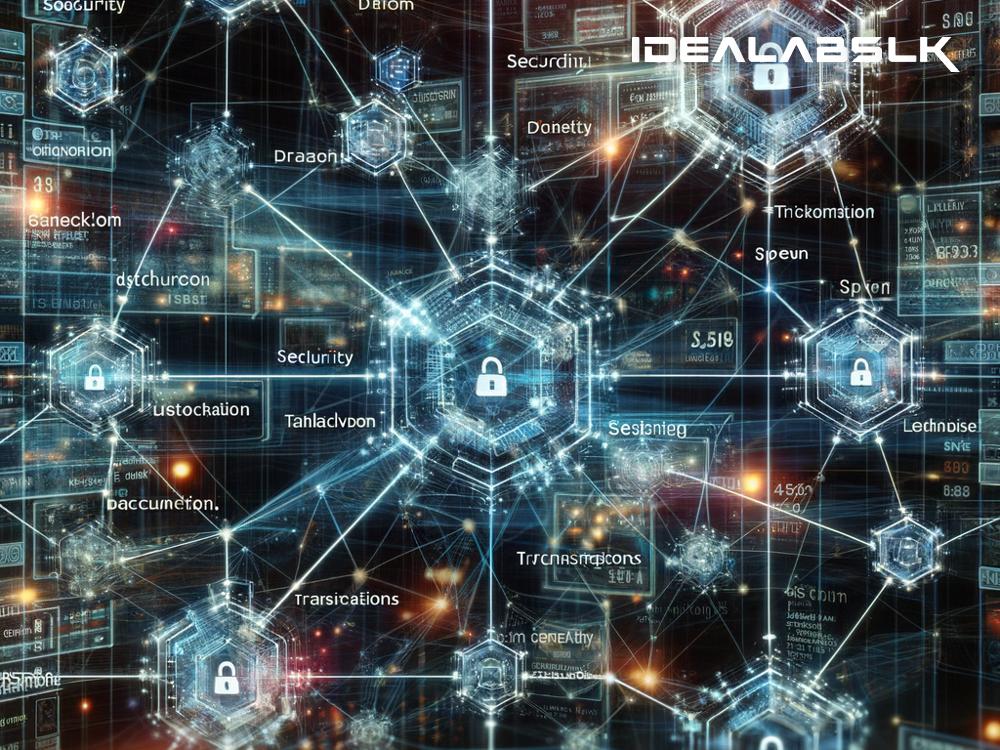The Future of Blockchain in Real-Time Consumer Data
In today's fast-paced digital world, the way we shop, bank, and interact online is changing at lightning speed. One of the biggest game-changers that has been making waves in this digital transformation is blockchain technology. You might have heard of it through the buzz around cryptocurrencies like Bitcoin. But, blockchain is much more than just a backbone for digital currencies. Its potential stretches far and wide, especially in handling real-time consumer data. Let's dive into what this could mean for our future.
What is Blockchain, Simply Put?
Imagine blockchain as a digital ledger, but instead of being kept in one place like a traditional ledger book, it's distributed across multiple computers. Each piece of data or transaction added to this ledger is like a block. Once a block is filled with data, it's linked to the previous block, forming a chain—hence, blockchain. The beauty of this system is that it's incredibly secure and transparent. Once something is added, it can't be tampered with or erased, making it a truthful record of transactions.
The Problem with Current Consumer Data Handling
Today, when you buy something online or interact with an online service, your data goes through several intermediaries before it reaches its destination. This process is not only slow but can be insecure, making your personal information vulnerable to breaches. Moreover, these intermediaries often sell your data, sometimes without your explicit consent. This has raised significant concerns about privacy and security in the digital space.
How Blockchain Can Revolutionize Real-Time Consumer Data
Blockchain offers a promising solution to these issues. Here’s how:
- Enhanced Security: With blockchain, consumer data can be encrypted and stored across numerous computers, making it nearly impossible for hackers to compromise.
- Direct Transactions: Blockchain allows for peer-to-peer transactions without needing intermediaries. This means when you buy something online, your data can be securely transferred directly to the seller without third parties accessing it.
- Real-time Data Access: Blockchain's decentralized nature means data can be updated and accessed in real time. For consumers, this translates to more accurate and timely information.
- Ownership of Data: Blockchain can empower consumers to own and control their data. With blockchain, you can decide who gets access to your data and under what terms, potentially even monetizing your own data if you choose.
Future Possibilities
Imagine a future where shopping online is ultra-secure, and you have complete control over your data. Real-time updates mean that the moment a product is back in stock, you know it and can make a purchase instantly. Any discounts or loyalty rewards are automatically applied to your transactions without you needing to do anything.
In healthcare, your medical records could be stored securely on blockchain, giving you and authorized healthcare providers immediate access to your health history, ensuring more accurate and timely medical care.
In finance, transferring money or getting a loan could be done in seconds, with all your financial data securely stored and accessible on the blockchain.
Challenges and Considerations
While the future looks promising, there are challenges. Scalability is one, as current blockchain technology can struggle with processing large volumes of transactions quickly. There are also issues of energy consumption, as the computing power required to maintain the blockchain is significant.
Regulation is another hurdle. How governments and regulatory bodies decide to regulate blockchain technology and its applications in consumer data handling will be crucial for its widespread adoption.
Conclusion
Blockchain technology holds the key to a future where real-time consumer data is secure, private, and under individual control. While there are hurdles to overcome, the potential benefits for both consumers and businesses are immense. Imagine a digital world where your data is safe, transactions are swift, and you have complete control over your personal information. That’s the promise of blockchain. As we move forward, it will be fascinating to see how this technology evolves and shapes our digital interactions. Get ready for a revolution in how we manage, share, and protect our data in the digital age.

